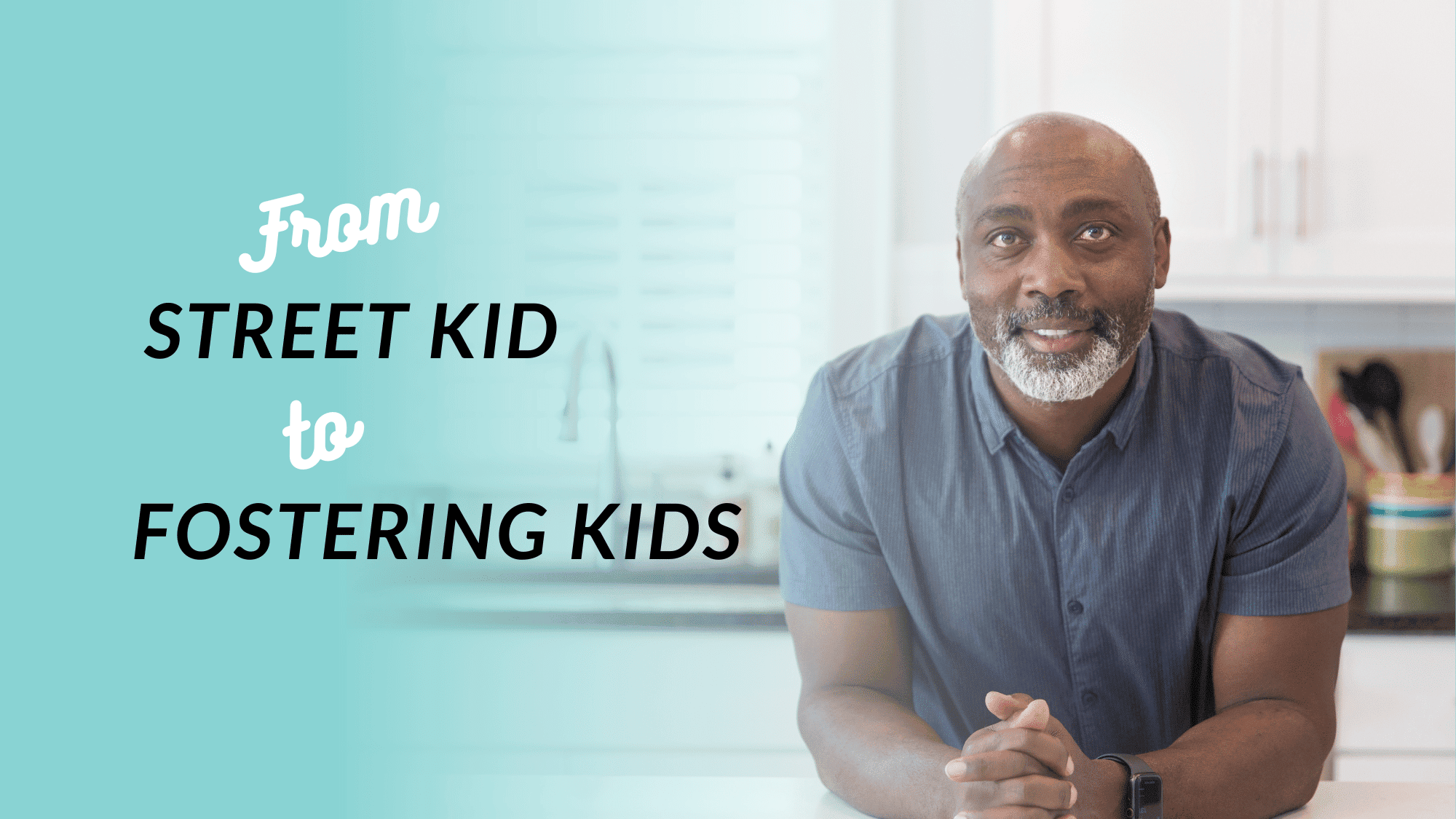I didn’t have a name until I was two years old. During the period when I was born in Uganda, most babies born to poor families weren’t given names because they didn’t live past their second birthdays. When I did, my mother gave me the name Peter Habyarimana. To my mother, I was a gift given from God.
But my father didn’t see me that way. I can’t remember a kind word from him. All I heard was, “Peter, you will never amount to anything,” and “I wish you had never been born so I wouldn’t have to feed you.” It’s hard to hear those words every day and not lose hope or dreams for a better life.
Early Life for Peter Mutabazi
I grew up hungry, walking 3 to 4 miles daily for drinking water and helping my mother grow crops to feed our family in a small village near the Rwandan border. And I did all of it on an empty stomach most days. When we did eat, it was usually potatoes and beans—day in and day out, month after month. Christmas and Easter were the only times there were different foods on the table.
At age 10, I was convinced my dad would take my life. So I ran away, not looking for a better life, but because I knew my life would end. I didn’t want my father to be the one who ended it. I had never been more than 20 miles away from home, yet I ended up more than 300 miles away in Kampala, the capital of Uganda. I wanted to put as much distance between my father and me as possible. Eventually, I even changed my surname to Peter Matubazi.
Living on the Streets
In Kampala, I realized I could live as a street kid, finding family among the many other children who survived by stealing food, eating out of garbage bins and sleeping under bridges and buildings. I lived like this for nearly five years, going by Habi until someone who cared finally asked me my name.
A stranger named James noticed me—a young man with no education but lots of street smarts—and saw potential in me. He enrolled me in boarding school, paying the fee on my behalf. There, I was not only able to attend school but also had regular meals and a place to sleep.
Finally, I had a future. I also discovered that God loved me. Eventually, I put my faith in Jesus and my future in His hands. It took a post-genocide trip to Rwanda with a relief organization—and seeing what hatred can do—to bring me to the point of forgiving my father.
Peter Mutabazi's New Life
I did well in school, completing high school and moving on to university in Uganda, where I studied business administration and worked for a variety of international relief agencies. I later attended university in the United Kingdom, eventually applying for and receiving a scholarship to study in the United States at The Master’s University in California.
When I arrived in the States, I struggled with my faith because of the things I saw. So much food was thrown away, yet I knew that many kids in my own village would lose their lives because they didn’t have a bowl of beans. I could not understand God’s love or why He allowed these things.
International Adoption
With my international experience and understanding of various cultures, I soon found a niche that involved traveling with families adopting internationally. The couples were always white, leading me to think that I—a single black man—wouldn’t be able to adopt or become a foster parent, one of the dreams I had for my life. I wanted to help children just as I had been helped, but the door seemed closed.
When I was in Ethiopia, I asked if it was possible for me to adopt. They told me that I had to be American or European and that only single women, not men, could adopt. I wasn’t an American citizen then, so I knew there was no chance.
While working as an advocate for vulnerable children in the U.S. and internationally, I learned more about the foster care process and the deep needs of children who enter care. This, I decided, was truly my calling. I took to heart Luke 12:48: “Everyone to whom much was given, of him much will be required, and from him to whom they entrusted much, they will demand the more.”
Peter Mutabazi Living God's Calling
I thought I couldn’t be a foster parent as a single man, but I could mentor children in need. So I embarked on that path, reaching out through agencies to help guide children experiencing the worst life can offer. I worked closely with social workers, one of whom asked if I might be interested in becoming a foster dad.
“I want to, but I can’t,” I told this person. The social worker was surprised and told me I could be a foster parent. I signed up that day, and five months later, I was licensed and had my first placement. Since then, I’ve had close to 30 foster children. In 2019, I became a U.S. citizen and adopted a son. I also have a teen foster son who aged out of the system.
Foster Family
My second foster child was the blondest kid I have ever seen; I figured that he must be at the wrong house. But that placement was when I knew I was to foster any child who needed a safe and loving home.
The journey hasn’t been without struggles. As a single black man with white children in my care, I have faced additional scrutiny, and biological parents have protested having their children placed with me.

The looks people have given me at the grocery store, park, school and hospital were unexpected, but I learned quickly how to stand up to that. It’s been fun to watch birth parents take a U-turn and begin embracing me as a dad, healing the racial differences or biases toward me.
Additional Resources:
- What is a Foster Parent?
- How to Support Foster and Adoptive Families
- How to Help Kids in Foster Care
- How God Used My Foster Parents to Change My Life
- “No One Loves Me”: Changing a Child’s Belief System from the Inside Out
- Too Old to Foster?
- Tips for choosing a Foster Care or Adoption Agency
- May is National Foster Care Month
Healing From the Past for Peter Mutabazi
Becoming a foster dad has also brought healing to my life. As I’ve helped children face their trauma, I’ve found healing from my own. Little did I know I’d have to revisit my childhood as a foster dad. Let’s just say these kids really knew which buttons to push, and I’m glad I found ways to use my past to help them heal.
Watching many of my foster kids’ biological parents reminded me of my own abusive father and what I experienced on the streets of Kampala. I disliked having anything to do with these parents, but as I learned about their backgrounds and what caused them to lose custody of their kids, I realized that I had to be their ally, not their enemy.
It wasn’t easy, but in time I began to build bridges in these relationships. Since then, it’s been amazing to see moms getting their kids back. I feel like I’ve gained extended families through it all.
Embracing the Challenges of Fostering

It’s a joy and a challenge being a single foster dad. Challenges come with not having another adult in the home to help process what I see and hear from the children, or someone to stay with the kids while I run to the store for milk and eggs. I’m the sole chauffeur to school and appointments, the sole chef and the sole caregiver and counselor. But would I change a thing? Absolutely not. It hasn’t been easy, but it was the best decision of my life. I can’t wait to foster more children, and I hope to adopt again.
Fostering Tips from Peter Mutabazi
Foster parents can’t be entirely prepared for the journey they have undertaken. But here’s what I’ve learned along the way:
- Establish a support system.
As my kids dealt with their trauma, I needed to deal with my own. Make sure you have a system of friends, family and mental health and physical health professionals in place to support you. - Adjust your expectations.
Children may not respond as you did as a child or even the way other kids from the same home do. For example, while you may have been trained to express gratitude, these children may have no idea what gratitude is. Realize that all children are different, and adjust your expectations accordingly. - Surround yourself with like-minded people.
Other foster parents truly understand your calling and can recognize trauma behaviors—but many other people can’t. Surround yourself with those who understand you and what your foster children are facing. - Prepare your mind and heart for those who don’t know you and don’t support your decision to be a foster parent.
The police have been called on me seven times because I’m a black man who has white and black children with me. I’ve endured harsh comments in person and on social media. I’ve learned how to respond to doubters, the ignorant and the obnoxious, as well as those who truly want to learn more. Be ready for all of it.





















